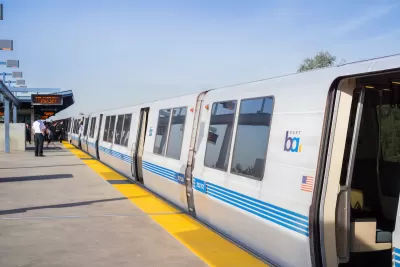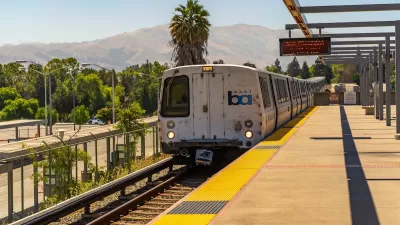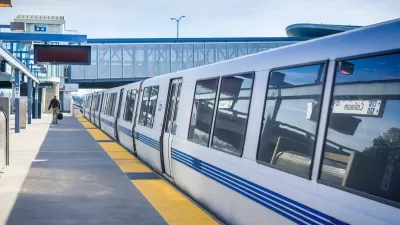The agency says shorter trains will enable them to increase security, retire aging cars, and save on energy costs.

As part of an effort to bring back its floundering ridership after the pandemic and address safety concerns, Bay Area Rapid Transit (BART) announced it will begin deploying shorter trains, according to Joel Umanzor writing in The San Francisco Standard.
In a post on the platform formerly known as Twitter, the agency said cars will be added back as needed.
Weeks ago, the agency launched a second phase of its Not One More Girl initiative aimed at improving rider safety and ending harassment and assault on BART trains. Safety is often cited by transit passengers as a major concern, particularly as ridership fell during the pandemic.
FULL STORY: BART To Run Shorter Trains for Rider Safety Starting Soon

Maui's Vacation Rental Debate Turns Ugly
Verbal attacks, misinformation campaigns and fistfights plague a high-stakes debate to convert thousands of vacation rentals into long-term housing.

Planetizen Federal Action Tracker
A weekly monitor of how Trump’s orders and actions are impacting planners and planning in America.

In Urban Planning, AI Prompting Could be the New Design Thinking
Creativity has long been key to great urban design. What if we see AI as our new creative partner?

King County Supportive Housing Program Offers Hope for Unhoused Residents
The county is taking a ‘Housing First’ approach that prioritizes getting people into housing, then offering wraparound supportive services.

Researchers Use AI to Get Clearer Picture of US Housing
Analysts are using artificial intelligence to supercharge their research by allowing them to comb through data faster. Though these AI tools can be error prone, they save time and housing researchers are optimistic about the future.

Making Shared Micromobility More Inclusive
Cities and shared mobility system operators can do more to include people with disabilities in planning and operations, per a new report.
Urban Design for Planners 1: Software Tools
This six-course series explores essential urban design concepts using open source software and equips planners with the tools they need to participate fully in the urban design process.
Planning for Universal Design
Learn the tools for implementing Universal Design in planning regulations.
planning NEXT
Appalachian Highlands Housing Partners
Mpact (founded as Rail~Volution)
City of Camden Redevelopment Agency
City of Astoria
City of Portland
City of Laramie





























